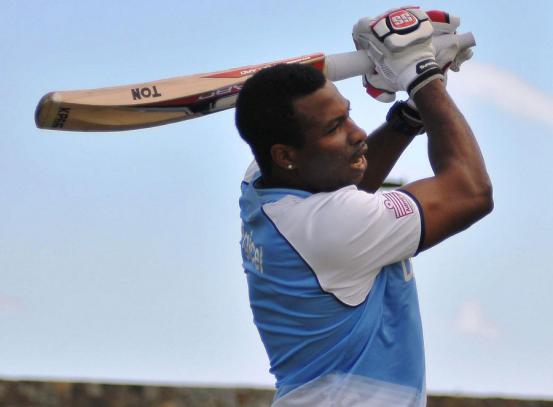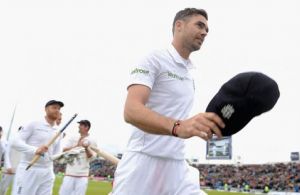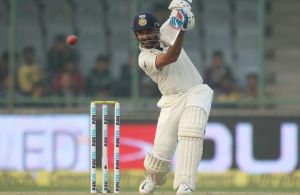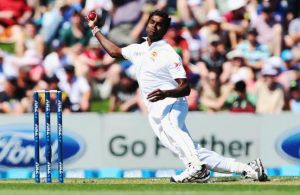- Commissioner’s statement on Ventura, Marte
- Ronnie O’Sullivan: Masters champion ‘felt so vulnerable’ in final
- Arron Fletcher Wins 2017 WSOP International Circuit Marrakech Main Event ($140,224)
- Smith challenges Warner to go big in India
- Moncada No. 1 on MLB Pipeline’s Top 10 2B Prospects list
- Braves land 2 on MLB Pipeline’s Top 10 2B Prospects list
- Kingery makes MLB Pipeline’s Top 10 2B Prospects list
- New Zealand wrap up 2-0 after Bangladesh implosion
- Mathews, Pradeep, Gunathilaka to return to Sri Lanka
- Elliott hopes for rain for Poli
Double standards hurting West Indies’ chance to rebuild
- Updated: May 22, 2016

In a television interview before the announcement of West Indies’ squad for the tri-series at home against Australia and South Africa in June, commentator Ian Bishop stressed on the need to focus on white-ball cricket ahead of the 2019 World Cup.
“Let us not burn any more bridges,” Bishop told Sportsmax Zone. “We are already missing the Champions Trophy next year. The World Cup is coming up in 2019. Let us start putting pride and ego aside.
“Re-engage those guys who were sidelined in the last year and a half and that will spill over to the Test team, because the bulk of our experience is in white-ball cricket. So while we develop the Test team, let us push hard with the 50-overs and T20 teams.”
If you look at the squad named for the tri-series, you will assume the West Indies board and its selectors are not only thinking on totally different lines from Bishop but that they are also contradicting their own policies.
Clive Lloyd, Courtney Walsh and the rest of the selectors have picked a team that has left the majority of the Caribbean media, fans and players flabbergasted.
How does Jonathan Carter, who averaged 6.33 in three ODIs in Sri Lanka, and wasn’t among the top ten run scorers in the Nagico Super50 competition, make the squad?
How do Andre Fletcher and Johnson Charles, who averaged 13 and 18 respectively with the bat in the Super50, get selected over Evin Lewis, the best opener in competition?
Kemar Roach is out of form and Ravi Rampaul a Kolpak player, so their omission is justifiable, but why is Shannon Gabriel, who did not play in the Super50, one of the quick bowlers in the squad ahead of Rayad Emrit?
There are three spinners in the squad – Sunil Narine, Ashley Nurse and Sulieman Benn. Why wasn’t Devendra Bishoo chosen, given West Indies’ first two ODIs will be played in Guyana, his home turf? It’s amazing that Bishoo and Narine, the ICC’s Emerging Players for 2011 and 2012 respectively, have only played one international together.
The WICB selection policy goes back to 2010, when, under the regime of Julian Hunte and Ernest Hilaire, it was mandated that West Indies’ star cricketers needed to play in the domestic tournaments to be eligible to play international cricket. Since …
continue reading in source www.espncricinfo.com



